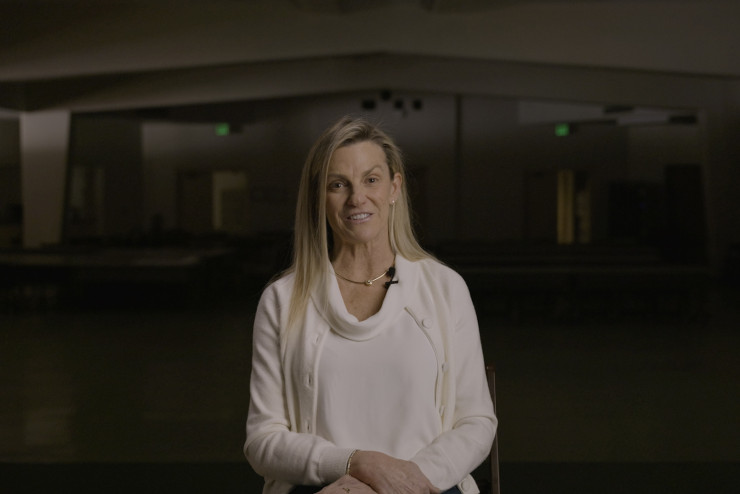
The Mathematics of Aviation
Professor Catherine Cavagnaro discusses the many intersections between mathematics and aviation—and how, no matter how well-versed you are in the science behind it, flying still feels like magic.
Mathematics and Computer Science embody artistry and analytical thought. It’s both pragmatic and irrational (pun intended). While mathematics and computer science are the foundational knowledge of many professions, it also provides valuable life skills that allow us to problem-solve every day.
The study of mathematics at Sewanee prepares you to be a discerning citizen capable of critically analyzing information, weighing alternatives, and presenting reasoned arguments. Math is a valuable skill set with innumerable applications. While the concepts are crucial for students in the discipline, their lessons can extend to far-ranging fields like law, science, economics, and theology.
Like a sculpture or a concerto, a theorem or an algorithm is a creative work. The department here at Sewanee seeks to expose you to the beauty of mathematics. As a mathematics major, you will take foundational courses, and then you’ll choose advanced level courses to narrow your focus. Whether it’s theory or statistics, you’ll glean from each class an understanding of reading and presentation, as well as the ability to formulate substantial proofs of your own.
Sewanee graduates secure positions in a variety of fields. Some you would expect, others are a bit of a surprise. Sewanee prepares you for your profession and your passion. Below is a sampling of recent graduates' first jobs.
Sewanee graduates enjoy extraordinary acceptance rates to top graduate and pre-professional programs–about 95 percent to law school and over 85 percent to medical school. Below is a sampling of where Sewanee grads continue their education.
There’s perhaps no more applicable field of study as we move further into a digital age. The world has come to depend on rapid rates of digital progression, and computer scientists are in great demand. That’s right—we’re talking to you. Sewanee’s computer science program will instill a deep understanding of both the mathematics of the field and the social forces behind it. As esoteric as it may seem, computer science solves people’s problems, making it a valuable and relevant language for everyone.
With diverse electives like graphics, robotics, artificial intelligence, and programming, you’ll have the option to focus on what interests you most. Co-curricular opportunities in the department include a National Science Foundation-sponsored initiative for undergraduate research in software development.
Sewanee graduates secure positions in a variety of fields. Some you would expect, others are a bit of a surprise. Sewanee prepares you for your profession and your passion. Below is a sampling of recent graduates' first jobs.
Sewanee graduates enjoy extraordinary acceptance rates to top graduate and pre-professional programs–about 95 percent to law school and over 85 percent to medical school. Below is a sampling of where Sewanee grads continue their education.

The Mathematics of Aviation
Professor Catherine Cavagnaro discusses the many intersections between mathematics and aviation—and how, no matter how well-versed you are in the science behind it, flying still feels like magic.
Calculus of several variables. Vectors, partial and directional derivatives, space curves, gradients, maxima and minima, linear and differentiable transformations, vector fields, line integrals, multidimensional Riemann integrals, and applications in physics and geometry are considered.
A treatment of probability and a logical development of the framework of mathematical statistics. Topics include random variables, distribution functions, sampling, and statistical inference.
An introduction to the creation of mathematical models, both deterministic and probabilistic, for the description of problems drawn from physical, biological, social, and environmental sources.
An introduction to creative modeling of both natural and virtual worlds, in which students gain understanding of human interaction with computing devices as well as the expertise needed for further course work in computer science. Lab experiences using the explicit notation of a programming language reinforce the application of abstractions while affording practice in algorithmic problem solving and relevant theory.
An introduction to object-oriented programming techniques that underlie the creation, manipulation, and transmission of digital media, including digital photography, audio, and video. Topics include scaling and transforming pictures, sound waveform visualization and manipulation, MIDI, chromakey, frame-based animation, and compression, encoding, and transmission of digital media over the Internet.
An overview of the field of robotics with special emphasis on motion planning. In addition to basic computer science concepts, introductions to the necessarily related fields of mechanical and electrical engineering are provided as appropriate. Computer simulations are used and students get hands-on experience with real world robotics through assignments using project component kits.
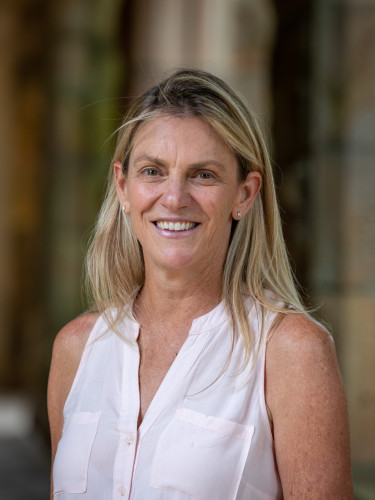
Catherine Cavagnaro holds a B.S. from Santa Clara University and a Ph.D. from the University of Illinois. Geometric topology and combinatorial group theory served as the basis for her thesis. She enjoys problems from a variety of other fields including statistics and cryptology as well as differential equations and aerodynamics.
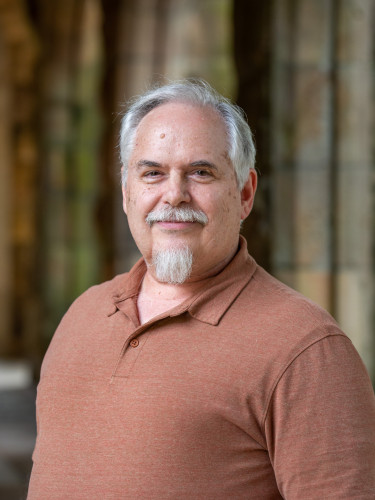
Stephen Carl received the B.S.E.E. degree from Rice University, a M.A. in Computer Science from the University of Texas at Austin, and a Ph.D. in Computer Science and Engineering from Wright State University in Ohio. His doctoral thesis explored memory-management issues in programming language runtime systems. He taught Computer Science courses for seven years at Wright State before coming to Sewanee.
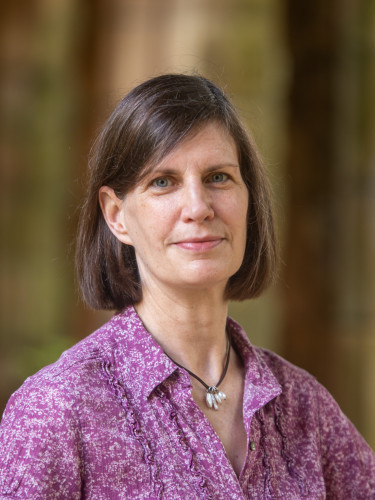
Emily Puckette began her career in mathematics by teaching and training teachers as a volunteer in the Peace Corps in Gabon in Central Africa. Her mathematical fields of interest are probability and analysis, and her pedagogical focus is engaging students in mathematics through active-learning techniques in the classroom.
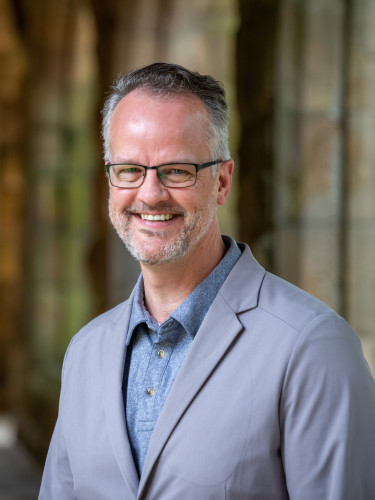
After a two year post-doc at Dartmouth College, Doug Drinen came to Sewanee in 2001. He greatly enjoys teaching across the entire undergraduate mathematics curriculum.
During his time at Sewanee, his research interests have shifted from functional analysis to probability, graph theory, economics, and any other area in which he can find problems to work on with students and colleagues.
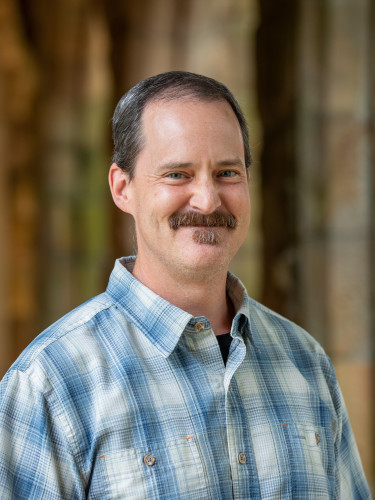
Matthew Rudd has been at Sewanee since 2010, after teaching at the University of Idaho and the University of Texas at Austin. He received his Ph.D. from the University of Utah, and his research interests include nonlinear partial differential equations and statistical modeling.
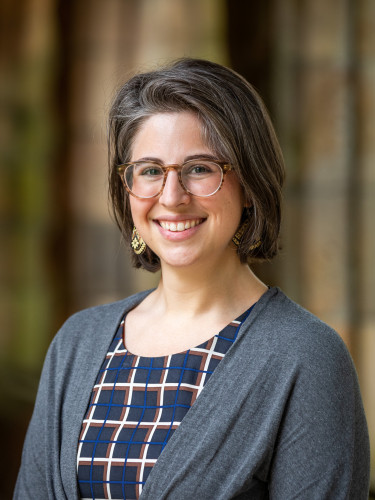
Anne Duffee holds a B.A. from St. John's College in Annapolis, MD and a Ph.D in Mathematics from the University of Alabama. Her research lies primarily in harmonic analysis, and her dissertation centered around two integral operators: the harmonic and geometric maximal operators.
She enjoys questions from a variety of fields, especially those in the fields of analysis and topology, and she has a growing interest in philosophy of mathematics, particularly questions of epistemology surrounding mathematical objects.
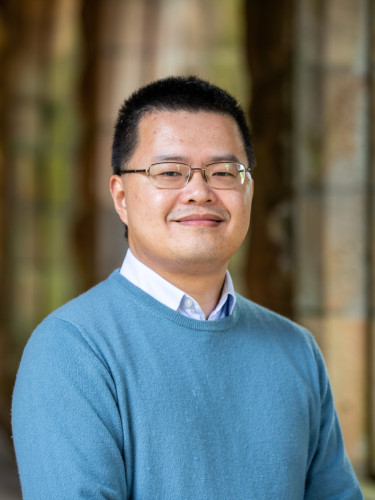
Zhexiu Tu holds a B.A. from Bard College and a Ph.D. from Cornell University. His research lies primarily in combinatorics and topology. He enjoys questions from a variety of fields, especially those in matroid theory.
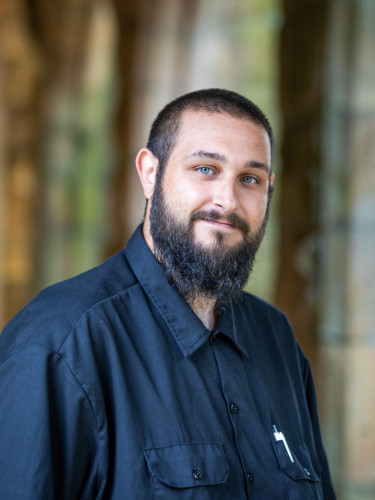
Chris Eppolito studied mathematics and philosophy at Canisius College and earned a PhD in Mathematics from SUNY Binghamton University.
His research is centers on combinatorics, focusing mostly on matroid theory and its connections with algebra, topology, and geometry.
When Chris is not researching or teaching mathematics, you can find him fishing, hiking, or coding.
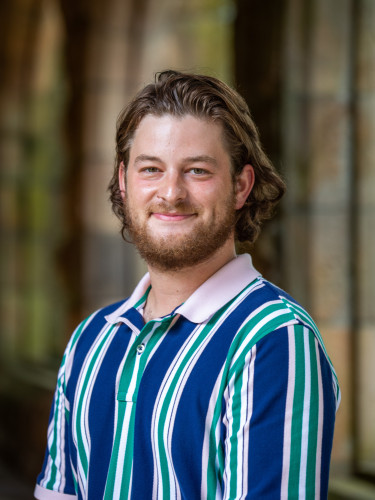
Seth Gannon holds a B.A. from Transylvania University, a M.S. from the University of Dayton, and a Ph.D. from University of Louisville. While finishing his dissertation he was also a lecturer of statistics for the Kentucky Community and Technical College System.
His research interests include the study of algebraic coding theory and its applications to cryptography, as well as, the study of ARIMA models in the area of times series analysis.
In his free time you can usually find him on the tennis court.
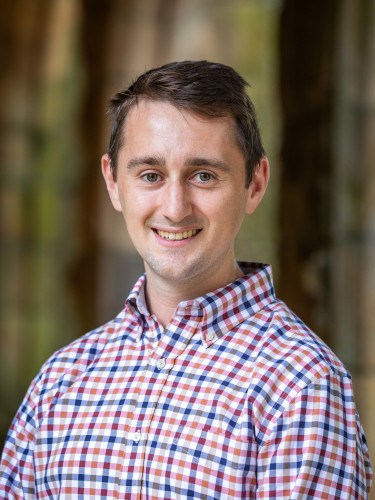
Shuler Hopkins earned his B.S. from King University in Bristol, Tennessee and a Ph.D. from The University of Tennessee in Knoxville. His research so far has been in the area of operator algebras with a focus on "Hadamard matrices".
Outside of mathematics, he enjoys all things soccer, baking (and eating) bread, and gardening.
Woods Labs 133A, 931-598-1716

The Babson Center for Global Commerce provides a co-curricular experience. As you engage with peers and take trips, you’ll learn about what companies are seeking. You’ll learn critical thinking and persuasive communication, all the while gaining an understanding of the “go to work” experience.

No matter where you are in your career exploration process, Sewanee Career Readiness can help. You’ll get assistance with cover letters, resumes, networking, and preparing for an interview. Likewise, if you just feel overwhelmed by this new experience called adulting, swing by the office and get a pep talk from Career Readiness.
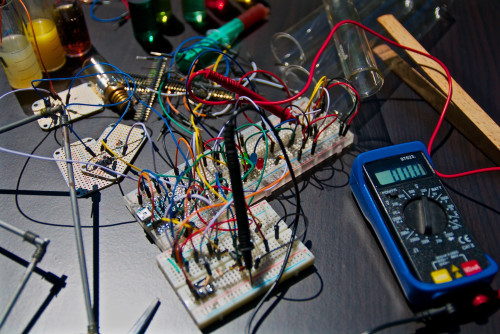
Sewanee collaborates with other schools to combine liberal arts and engineering curricula. In this 3/2 program track, you’ll end up receiving two baccalaureate degrees after three years at Sewanee plus two years at an engineering institution. Pre-engineering curriculum at Sewanee will prepare you with technical skills and social awareness.